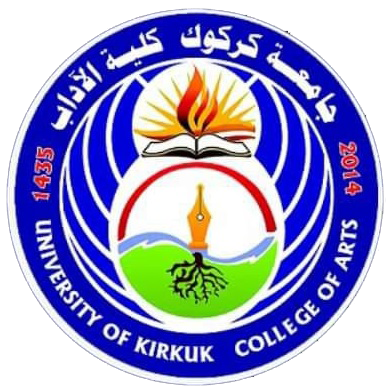On Monday, September 18, 2023, the Master’s thesis entitled (Foreign Policy of the Kingdom of Saudi Arabia within the Framework of the Cooperation Council for the Arab States of the Gulf 1981-1989) by student Talal Rifaat Othman from the Department of History was discussed at the College of Arts - Kirkuk University, on Monday, September 18, 2023.
The discussion, which was organized in the college hall, was attended by Professor Dr. Omar Najm al-Din Angeh, who expressed his thanks to the esteemed committee for the advice and instructions it provided during the discussion.
The discussion committee consisted of the gentlemen whose names are listed, namely:
-a. Dr.. Sawsan Jabbar Abdul Rahman, College of Arts/University of Kirkuk (President)
-a. Dr.. Ahmed Hussein Abd, College of Education for Human Sciences/Tikrit University (member)
-a. M. Dr.. Nabil Akid Mahmoud, College of Education for Human Sciences/University of Kirkuk (member)
- a. Dr.. Fahd Abbas Suleiman, College of Education for Girls / University of Kirkuk (member and supervisor)
This message reached a number of results, the most important of which are:
1- The establishment of the Cooperation Council for the Arab Gulf States came for the purpose of building a solid foundation for enhancing the security of the Arab Gulf region, after the emergence of several international and regional challenges, including the Soviet invasion of Afghanistan in 1979, the Islamic Revolution in Iran in 1979, and the outbreak of the Iraq-Iran war that lasted for eight years. 1980-1988, and the feeling of the Kingdom of Saudi Arabia and the rest of the Gulf states is that the best solution for maintaining the security and stability of the Gulf states lies in establishing a political-economic system responsible for preserving the interests of those states.
2- The Kingdom of Saudi Arabia’s leadership of the Gulf Cooperation Council and its support for it stemmed from its strategic interests. The Kingdom was the largest country in terms of population, economic power, and military forces, and it had political relations with all the GCC countries. This gave it an influential role in determining the Council’s path and projects, and led it to choose Riyadh as the headquarters of its secretariat, making it the main center for making decisions and implementing relevant projects.


The discussion, which was organized in the college hall, was attended by Professor Dr. Omar Najm al-Din Angeh, who expressed his thanks to the esteemed committee for the advice and instructions it provided during the discussion.
The discussion committee consisted of the gentlemen whose names are listed, namely:
-a. Dr.. Sawsan Jabbar Abdul Rahman, College of Arts/University of Kirkuk (President)
-a. Dr.. Ahmed Hussein Abd, College of Education for Human Sciences/Tikrit University (member)
-a. M. Dr.. Nabil Akid Mahmoud, College of Education for Human Sciences/University of Kirkuk (member)
- a. Dr.. Fahd Abbas Suleiman, College of Education for Girls / University of Kirkuk (member and supervisor)
This message reached a number of results, the most important of which are:
1- The establishment of the Cooperation Council for the Arab Gulf States came for the purpose of building a solid foundation for enhancing the security of the Arab Gulf region, after the emergence of several international and regional challenges, including the Soviet invasion of Afghanistan in 1979, the Islamic Revolution in Iran in 1979, and the outbreak of the Iraq-Iran war that lasted for eight years. 1980-1988, and the feeling of the Kingdom of Saudi Arabia and the rest of the Gulf states is that the best solution for maintaining the security and stability of the Gulf states lies in establishing a political-economic system responsible for preserving the interests of those states.
2- The Kingdom of Saudi Arabia’s leadership of the Gulf Cooperation Council and its support for it stemmed from its strategic interests. The Kingdom was the largest country in terms of population, economic power, and military forces, and it had political relations with all the GCC countries. This gave it an influential role in determining the Council’s path and projects, and led it to choose Riyadh as the headquarters of its secretariat, making it the main center for making decisions and implementing relevant projects.


 College of Arts - University of Kirkuk
College of Arts - University of Kirkuk 


